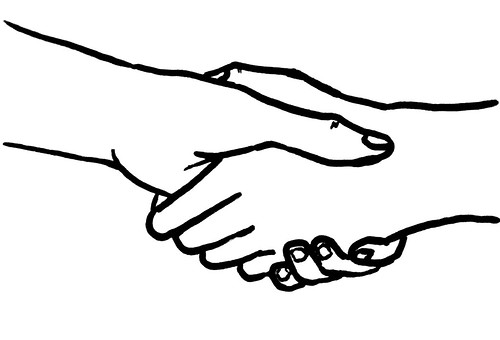We would all like to think that we’re good people. And, if pressed on the topic, we can usually find examples of how good we are.
“I held the door open for an old man.”
“I gave a homeless guy a buck.”
“I let someone merge ahead of me during rush hour.”
But let’s be honest: would you still do these things as often if nobody saw you do them? What if you held that door open and the man walked through without noticing you? What if nobody saw you give the homeless guy a buck…not even the homeless guy? Don’t you get irritated when you let someone merge and they don’t even give you a friendly wave?
Don’t worry, you’re not a bad person…just a human.
One of the most valuable concepts for community managers may be Maslow’s Hierarchy of Needs. It nicely maps out the importance of various needs of humans*.

Most people have fairly fragile self-esteem, and – whether they explicitly say it or not – the respect of others is important to them. We’re more likely to be involved in a cancer run than to anonymously donate $50 to cancer research. Foursquare is a pretty silly concept if you think about it. But damn if you don’t want that badge. We want that recognition.
Again, that doesn’t make us bad people. We could get that recognition by dominating at a sport, making the most sales at a company, or being the biggest bully in school. There’s honor in choosing to stroke your ego through positive actions.
If you’re a community manager focused on getting people to contribute, stop trying to appeal to their morality. I don’t care if you’re as frivolous as Facebook or as honorable as Kiva. You’re going to get the most engagement by appealing to people’s need for recognition.
Why do people retweet blog posts? Post to forums? Attend events? Not just to share the knowledge with others; they also want to show how smart they are for finding this content first.
 If you want people to contribute, create a way for them to share how great they are. Seeking donations? Give people a gift that lists your cause on it so they can show everyone that they supported you. Seeking forum activity? Highlight people who contribute; make them feel special. Want people to share blog posts? Include juicy stats that make them look like a brilliant researcher.
If you want people to contribute, create a way for them to share how great they are. Seeking donations? Give people a gift that lists your cause on it so they can show everyone that they supported you. Seeking forum activity? Highlight people who contribute; make them feel special. Want people to share blog posts? Include juicy stats that make them look like a brilliant researcher.
*I don’t think Maslow’s Hierarchy is perfect (so few things are), but I think the general concept is very useful.





